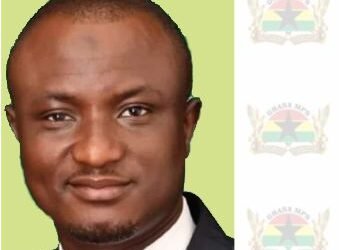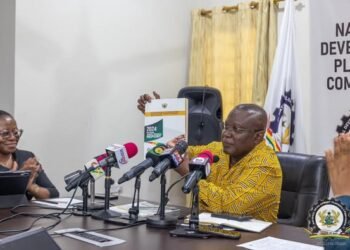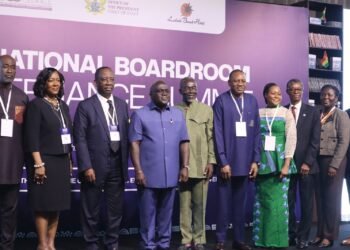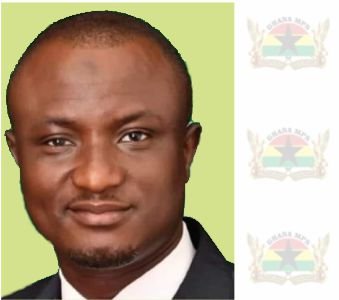The U.S. State Department has imposed visa restrictions on Ghanaians whose conduct undermines Ghana’s democracy. This measure, which seeks to prevent those threatening political stability from seeking refuge in the U.S. has sparked various reactions.
The Executive Director of the Media Foundation for West Africa (MFWA) Sulemana Braimah, has backed this decision and regards it as the best way to help deal with the impunity within Ghana’s political terrain.
“This is so, because there are a lot of people who think that they can act anyhow, behave anyhow [and then when] they don’t get what they want to achieve, then [the] nation is thrown into turbulence or chaos, they can quickly have a safe haven either in the US or other Western countries. And so this is a very, significant development.”
Sulemana Braimah Executive Director of the Media Foundation for West Africa (MFWA)
By imposing such visa restrictions, Braimah believes that the U.S. is sending a strong message to potential instigators, making it clear that they cannot count on finding safety abroad if they disrupt their home country’s peace.
Call for Countries to Join
“If you are investing that much, in terms of partnerships and cooperation, why would you want to see one person, you know, [or a few] people throw the state into anarchy?”
Sulemana Braimah Executive Director of the Media Foundation for West Africa (MFWA)
He expressed hope that other countries should join in this initiative, sending a unified signal that undermining peace in one’s own country would not be tolerated and would carry international consequences.
Concerns of Subjectivity in Determining Culpability
While Braimah endorsed the new policy overall, he recognized some complexities surrounding the implementation of the sanctions.
Meanwhile, others perceived that a lot of the determination appears pretty subjective and that needs to be determined. The question of balance is central in this restriction, the crucial question then is, how do they even go about determining that somebody has used some measure to intimidate a civil society organization from voicing their views?
However, he expressed confidence in the U.S. system, which he praised for its high standards of free speech and political expression, suggesting that the implementation of these sanctions would be done judiciously.
The U.S. and Free Speech Standards
In discussing the U.S.’s role in setting a global standard for free speech and political liberties, Braimah indicated that he does not believe that these visa sanctions will be enforced based on minor infractions. Rather, he trusts that the U.S. will apply a high threshold for determining guilt, given the protections under the First Amendment and other civil liberties in the United States.
By enforcing these sanctions selectively, he believes the U.S. can balance the interests of security and the protection of free speech without penalizing individuals merely for their political views.
The Impact on Local Political Culture
Braimah also discussed the broader implications of the sanctions for political culture in countries like Ghana, where he perceived a rise in “caustic language” and violent rhetoric.
He argued that certain individuals, particularly those who revel in notoriety within their political circles, are responsible for perpetuating this harmful environment.
For him, the visa sanctions serve as a necessary measure to curtail this behavior and remind such individuals that they will be held accountable on an international level.
Publicly Available Reports on Violent Rhetoric
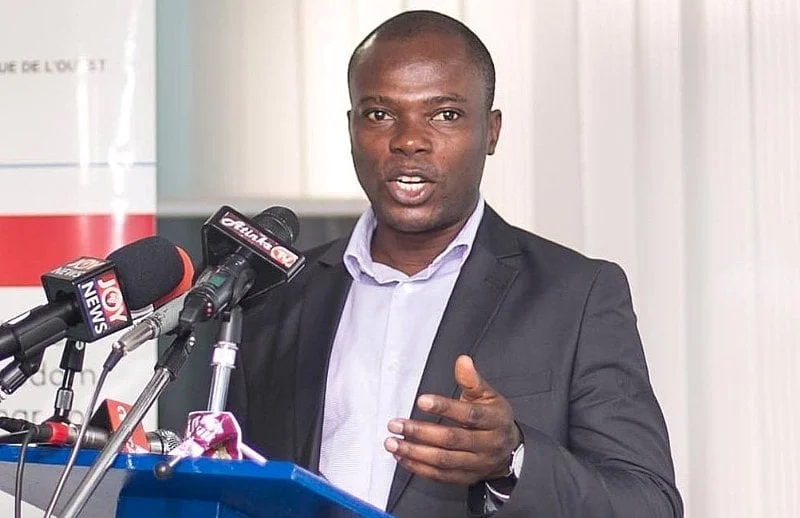
As the Executive Director of MFWA, Braimah highlighted the organization’s ongoing work in tracking and reporting instances of harmful language in the media. When asked if MFWA would share its findings with the U.S. embassy to aid in identifying violators, he said:
“Our reports are public…we issued them, you know, as and when we put out a report. And just as they do this regular human rights report where they pick information from multiple sources, I wouldn’t be surprised that they certainly will be interested in the kind of report that we are putting out there.”
Sulemana Braimah Executive Director of the Media Foundation for West Africa (MFWA)
By making these reports readily available, MFWA plays a crucial role in ensuring that both domestic and international bodies have the necessary data to make informed decisions regarding individuals who may be instigators of unrest.
Sulemana Braimah’s reaction to the U.S. visa sanctions on Ghanaians whose actions undermine democracy underscored both the potential impact of the policy on stabilizing political environments and the complexities of its implementation.
While he welcomed the move, he stressed the importance of applying the policy judiciously, without compromising the principles of free speech.
For Braimah, this development serves as a reminder to political figures and citizens alike that actions have consequences, and that the international community is ready to take measures to support democracy and peace.



